BNP for new govt model
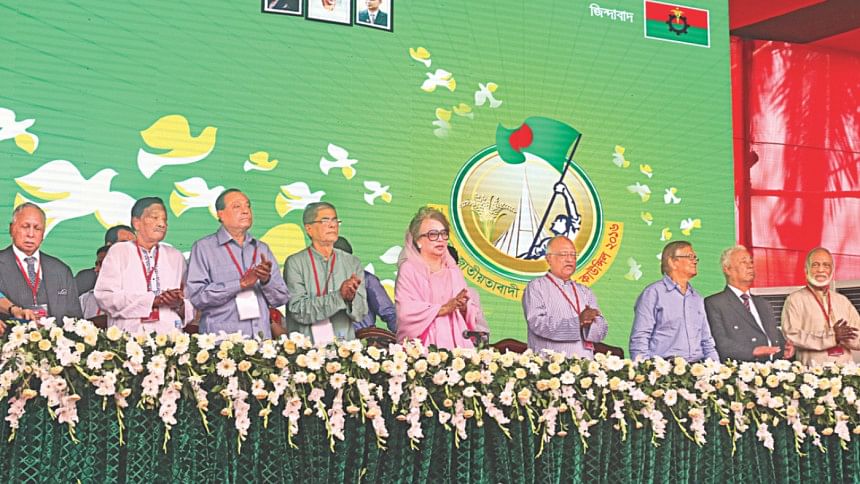
If voted to power, the BNP will ensure a balance of power in the executive branch of the government by bringing necessary amendments to the constitution, party chief Khaleda Zia said yesterday.
“In recent years, people have had a deep realisation that the absolute executive authority of prime minister has given rise to a despotic and authoritarian rule,” she said, addressing her party's national council in the capital.
She, however, did not explain how the balance of power will be brought about -- by limiting the power of the PM or by empowering the president.
At present, the post of president is rather ornamental with very little power to exercise.
Khaleda was prime minister thrice and enjoyed similar absolute powers since restoration of democracy after the fall of autocratic ruler HM Ershad in December 1990.
She was prime minister even when the country switched to parliamentary democracy from the presidential form of government in 1991 through constitutional amendment, which reintroduced the current provisions that give the PM a sweeping authority.
She spoke against such absolute powers for the first time yesterday.
BICAMERAL PARLIAMENT?
Speaking at the council, the BNP chief pledged to introduce a bicameral parliament, maintaining the unitary nature of the country, and restore the referendum system in the charter.
There will be an upper house of parliament with representatives from different communities, marginal groups, knowledgeable and gifted people from different professions, said Khaleda.
Under the constitution, all powers belong to the people, she said in defence of referendum. "But the present government has abolished the provision from the constitution. We will reintroduce this provision of referendum introduced by Shaheed President Ziaur Rahman and restore the democratic rights of the people."
Any changes in the balance of power between the PM and the president, the introduction of an upper chamber of the House and restoration of the referendum system will require an amendment to the constitution. To amend the charter, two-thirds majority is needed in parliament.
In the council, the BNP chief did not announce the name of a new secretary general or any member of the national executive committee of the party. The councillors vested their power in Khaleda to elect the secretary general and all members and officials of the national executive committee.
After the death of Khandker Delwar Hossain in 2011, Mirza Fakhrul Islam Alamgir was made acting secretary general.
Several councillors criticised the party high-ups for doing little during the anti-government movement last year, and urged Khaleda not to give any post to those who “betrayed” the party.
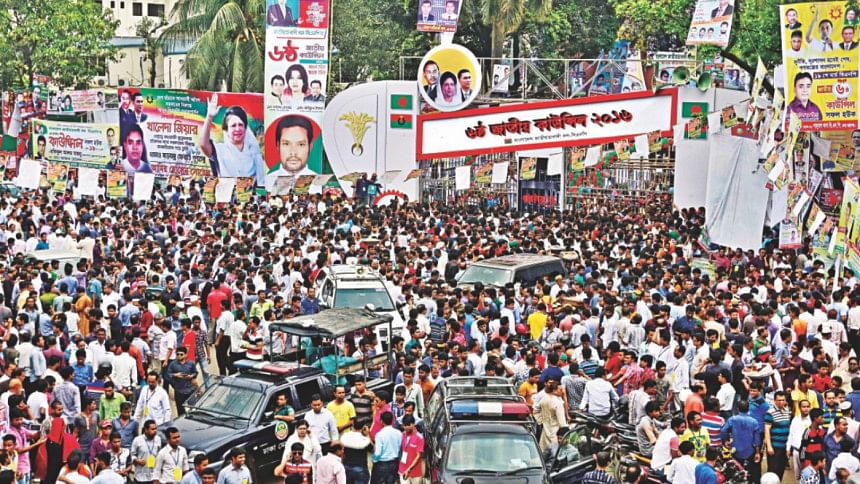
VISION 2030
In her address at the Institution of Engineers, Bangladesh, the BNP chief unveiled her party's Vision-2030 plan “to turn the country into a higher middle income nation” if voted to power.
She said her party wanted to combine 3Gs -- good policies, good governance and good government.
Khaleda promised stern action against militancy and corruption, and said the post of an Ombudsman would be introduced to ensure administrative transparency and accountability.
Her second term in office between 2001 and 2006 was marked by widespread corruption and alleged patronisation of militants.
Khaleda also spoke of decentralisation. "A massive devolution of power in all strata of government will be ensured. Duties and responsibilities of the local government institutions will be identified to ensure good governance."
In addition, the party will ensure transparency in appointing constitutional post holders by introducing a public hearing system, she said.
She opened her speech by recalling the outstanding contributions of the country's great leaders -- Sher-e-Bangla AK Fazlul Huq, Hussein Shaheed Suhrawardy, Maulana Abdul Hamid Khan Bhashani and Bangabandhu Sheikh Mujibur Rahman.
“They all made our great War of Liberation successful through a long struggle.”
She also thanked India and other friendly countries and people who extended their support during the 1971 war.
Mentioning that the council is being held at a very critical juncture, she said, “We'll have to show the light to remove this darkness from the national life through this council session.”
Explaining the theme of her Vision-2030, Khaleda said, “Providing space for all shades of opinion and beliefs, we want to nurture and strengthen a political culture which will create a vibrant pluralistic Bangladeshi society. Bangladesh will become a rainbow nation through unity and diversity.”
Bangladesh will become a modern democratic and higher middle income country with a per-capita income reaching around $ 4,000 to 5,000 by 2030, she said.
“For this purpose, the BNP will take creative and well thought-out policies and measures to reach a double-digit growth rate.”
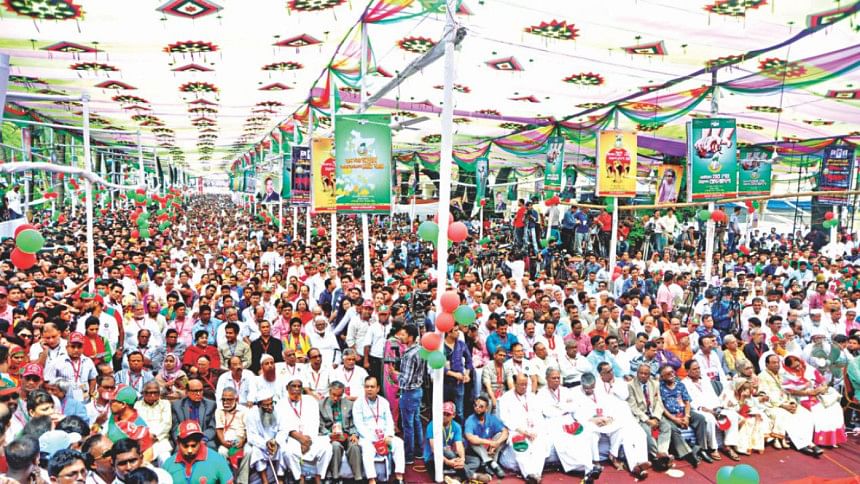
'ENGAGE IN DIALOGUE'
Khaleda also promised to revoke all “black laws”.
Insisting that the BNP will not allow any terrorist and separatist activities inside Bangladesh against any other country, Khaleda said the party would work with the international community to contain terrorism and militancy.
She said her party would introduce a positive, creative and forward-looking politics, coming out of the current politics of vengeance, confrontation and annihilation.
The young generation will have to take the leadership as many of the existing leaders may not be in the position for long, she said. “What kind of a country and society are we leaving behind for them?”
Touching upon the holding of an inclusive and fair election, Khaleda said political parties could surely find a way through talks.
“That's why I once again urge the government to engage in dialogue in this regard,” she said, adding that not only the BNP but also almost all political parties in Bangladesh wanted a democratic and representative government.
“For this, a fair, peaceful and inclusive election is necessary as soon as possible.”
She called upon the people to unite to get back their rights that have been “snatched by the government”.
FULL TRUST
Khaleda inaugurated her party's sixth national council amid a festive atmosphere by hoisting the national flag at 10:48am.
She also released a bunch of balloons and pigeons.
Around 3,000 councillors, 8,000 delegates and thousands of party leaders and activists from home and abroad gathered at the venue.
Leaders of different political parties and business and professional bodies, some foreign diplomats and intellectuals attended the inaugural ceremony.
However, no representative from the ruling Awami League was present unlike in the previous council in 2009.
At the beginning of the election process for the standing committee members and members and officials of the executive committee, senior BNP leader Khandaker Mosharraf Hossain told the councillors that it would not be realistic to start the election process, as it would take long to complete.
“Besides, you have already said that you have full trust in Begum Khaleda Zia in all matters. I would therefore urge you to raise your both hands if you support the proposal to give her the responsibility to elect members of the standing committee and other office bearers in the executive committee,” Mosharraf said.
The councillors then said yes by raising their hands.
Khaleda later said she would do the “serious and huge task” after a huge home work.
MORE POWER FOR KHALEDA, TARIQUE
The second session of the council amended the party charter, giving Khaleda and her son Tarique Rahman ever more power.
Following the amendment, all front and associate bodies of the party must have Khaleda's approval, unlike in the past. She can also reorganise any scrapped committee, subject to approval by the next council.
In addition, the new party charter allows holding of only one post, but Khaleda can bypass this provision to give anyone more than one post.
As for Tarique, he will now enjoy the power to carry out the “whole range of party activities” in the absence of the party chief. He can also continue to hold the post of the party chief, in the party chairperson's absence, until the next council.
Referring to the $101 million cyber heist from the Bangladesh Bank reserves, Khaleda told this session: “We have proof that the money has been stolen and some big fishes were behind this. But the media could not write it.”
She alleged that BB governor Atiur Rahman was made the scapegoat, and that is why he cried at the press conference.

 For all latest news, follow The Daily Star's Google News channel.
For all latest news, follow The Daily Star's Google News channel. 

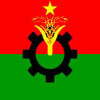


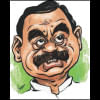



Comments